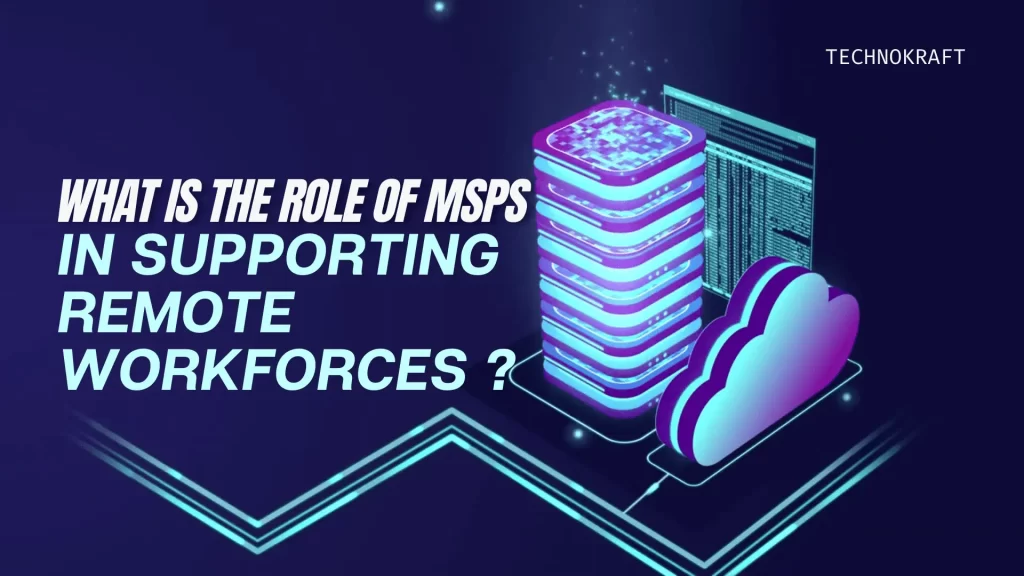
Earlier in 2020, during the pandemic, every company was challenged to adapt all of a sudden and forced to stay indoors and minimize any sort of physical contact.
Due to unforeseen circumstances, almost 70% of full-time employees started working from home as an emergency solution.
This assumed temporary work arrangement is now part of the new normal, as business owners increasingly embrace remote working. More and more employees are looking for hybrid workplaces that give them the flexibility to decide when and where they want to work.
Here’s the problem. With a distributed workforce, it’s becoming increasingly difficult for IT departments to monitor everyone’s online activity. As a result, IT issues and cybersecurity threats are also on the rise.
Table of Contents
ToggleCOMMON 3 CHALLENGES OF REMOTE WORK
Internet connectivity issues-
A lot of communication lag and gap arise, with unstable or slow internet connections, specially while virtual meetings and other collaborations, inconsistent network bandwidth forms the greatest hindrance.
Most of the time, the network that we have at home is not as strong as the one we have in the office.
Inadequate or outdated hardware-
The computers that employees have at home may be outdated or could also lack the necessary specifications for modern applications and tasks. This can result in slow performance, increased response time and frustration on part of both the management and the remote worker. Home networks are usually designed for basic internet usage and may not be optimized as per the demands of the given remote work!
Increased vulnerability to cyber security threats-
Remote employees may be much more exposed to PHISHING ATTACKS due to the absence of in person verification and immediate IT support. It becomes very easy for the cyber criminals to exploit the decentralized nature of working remotely. This is exactly where the attackers target individuals through deceptive mails, messages or fake websites.
PLUS, the remote employees might use a diverse range of devices at home and here arises the challenge of ENDPOINT SECURITY. An outdated antivirus software on personal devices can expose organizations to all sorts of cyber threats.
HOW CAN AN MSP HELP IN SUPPORTING REMOTE WORKFORCES.
NETWORK SECURITY AND CYBER SECURITY-
Managed service providers play a crucial role in enhancing network and cyber security for organizations, especially in the context of supporting remote work.
When we talk about network security, MSPs implement firewalls to control and monitor incoming and outgoing network traffic. Using advanced intrusion detection and prevention systems, MSPs can anticipate and identify potential risks, which contributes to the overall security.
MSPs will set up and manage VPNs to secure data transmitted between the remote employees and the company network.
Technokraft MSP continuously primarily monitors your network, which allows us to detect any slightest of security breaches or performance issues. Timely identification enables proactive responses to mitigate risks.
When we talk about cyber security, MSPs play a critical role in securing endpoints, including devices used by remote employees.This involves deploying and managing antivirus software, firewalls, and other security measures on individual devices.
Implementing MFA is an effective way to enhance cybersecurity. We, Technokraft as a responsible MSP are responsible for keeping software and systems up-to-date with the latest security patches.
EMAIL SECURITY IS CRUCIAL. MSPs can implement advanced email security solutions to protect against phishing attacks, malware, and other email-based threats. This includes filtering malicious content and educating users on identifying phishing attempts.
Technokraft is famous for providing free security awareness training to every organization possible, globally.
CLOUD SERVICE INTEGRATION-
MSPs will integrate cloud based applications that support remote work functions such as office productivity suites ( Google workspace, Microsoft 365), collaboration tools and project management software. This ensures that remote employees can store, access and collaborate on documents and files from anywhere with an internet connection.
24/7 IT SUPPORT-
Remote employees may encounter technical issues at any time. 24/7 IT support ensures that problems are addressed promptly, minimizing disruptions and allowing employees to maintain productivity. With a global or distributed workforce, time zone differences become a factor. 24/7 support accommodates users in different time zones, providing assistance when their local support teams might be unavailable.Quick response to technical issues reduces downtime for remote workers.
Some tasks, such as project launches or critical deadlines, may require immediate IT support. 24/7 assistance ensures that remote workers receive timely help during these crucial periods
IS MSP A MUST TO SUPPORT YOUR REMOTE WORK SETUP?
Remote work is here to stay.
The only thing you can do is make sure your company is ready for whatever happens.
In summary, the challenges your business may face during migration include: Insufficient remote collaboration tools Slow internet connections Insufficient IT support and above here’s how Technokraft MSP can help you set up support for remote work.
